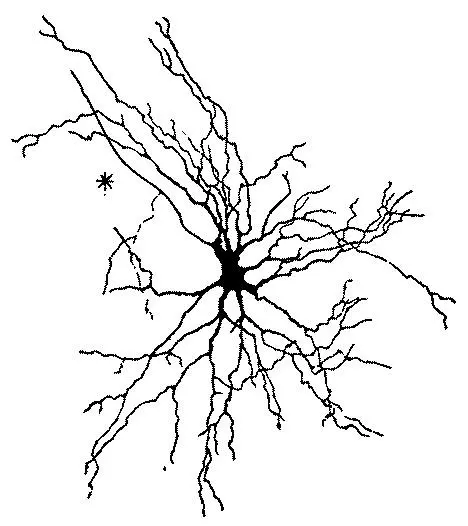James Walsh - Psychotherapy
Здесь есть возможность читать онлайн «James Walsh - Psychotherapy» — ознакомительный отрывок электронной книги совершенно бесплатно, а после прочтения отрывка купить полную версию. В некоторых случаях можно слушать аудио, скачать через торрент в формате fb2 и присутствует краткое содержание. Жанр: foreign_prose, psy_theraphy, foreign_edu, foreign_antique, на английском языке. Описание произведения, (предисловие) а так же отзывы посетителей доступны на портале библиотеки ЛибКат.
- Название:Psychotherapy
- Автор:
- Жанр:
- Год:неизвестен
- ISBN:нет данных
- Рейтинг книги:4 / 5. Голосов: 1
-
Избранное:Добавить в избранное
- Отзывы:
-
Ваша оценка:
- 80
- 1
- 2
- 3
- 4
- 5
Psychotherapy: краткое содержание, описание и аннотация
Предлагаем к чтению аннотацию, описание, краткое содержание или предисловие (зависит от того, что написал сам автор книги «Psychotherapy»). Если вы не нашли необходимую информацию о книге — напишите в комментариях, мы постараемся отыскать её.
Psychotherapy — читать онлайн ознакомительный отрывок
Ниже представлен текст книги, разбитый по страницам. Система сохранения места последней прочитанной страницы, позволяет с удобством читать онлайн бесплатно книгу «Psychotherapy», без необходимости каждый раз заново искать на чём Вы остановились. Поставьте закладку, и сможете в любой момент перейти на страницу, на которой закончили чтение.
Интервал:
Закладка:
If a vitalistic principle were needed to enable us to understand the workings of the ordinary body cells, how much more is it required for the workings of brain cells. There is something behind that guides and rules the brain, and through which it accomplishes its work. It is this that brings about an unconscious cerebration accomplishing intellectual results for us even when the brain machine itself is at rest as when asleep, or fails, for some reason, to be in readiness to take up the work that we demand of it. It is this vital principle that coordinates the movements of brain cells which represent the physical processes underlying memory and the nervous elements of the sensitive and motor phenomena of the organism. Reflection on the physical mechanism underlying mental operations of various kinds, demands the vitalistic explanation much more than the physiological phenomena which have converted physiologists to the old way of thinking in our time. Our individuality is probably largely due to the physical basis of our mentality, but there is something more than that required for any theory of mental operations that would satisfy all the questions that come to us. There is, then, actual proof of the existence of a force that is part of us, that constitutes a bit of the essence of our personalities, yet is capable of accomplishing results that we cannot understand, and of managing a machine that transcends any physical powers that we can think of.

FIG. 22—MOTOR CELL OF VENTRAL HORN OF SPINAL CORD FROM THE HUMAN FETUS, THIRTY CENTIMETERS LONG (method of Golgi; after von Lenhossek. Barker.)
This vital force behind the nervous system contains stores of energy that can be called on for therapeutic purposes. It is the directing, co-ordinating and energizing force which controls the central nervous system, and enables it to accomplish its purposes. It is the disappearance of this force at death which leaves the body without vital activity, though no physical difference between the dead and the living body can be demonstrated. Changes in the body follow death; they are not simultaneous. This vital force supplies the energy that we call the will, and underlies the process called "living on the will" which so often serves to maintain existence when there is every reason to think that a fatal termination is due. The amount of energy thus available is limited, but is much more powerful than has been thought. It is of the greatest possible service in preserving health and eliminating disease. Its existence, demonstrated by the complex nervous system which we employ with such confidence, though we know nothing of it, furnishes the best possible basis for confident attempts at rousing the patient to use the vital energy he possesses for the strengthening of weakness, the correction of deficiency and the control of evil tendencies.
CHAPTER VI
UNCONSCIOUS CEREBRATION
Many of the exhausting neurotic and psycho-neurotic affections so common in recent years are largely due to the failure of patients to secure such mental relaxation as will permit complete repair of nervous waste. We are proud of being a generation of specialists. Some men never get completely away from the set of thoughts with which they are occupied in their particular specialty. Waking or sleeping these thoughts are with them. It is almost impossible, then, for cells of the central nervous system to secure such rest as they need. Cells must be put at absolute rest so that nutritional processes may go on entirely undisturbed, and every portion of the cell be renewed in vigor. Re-creation, in its original meaning, is exactly what must be provided for nerve cells.
The trouble is not alone that men occupy a very narrow set of brain cells with their special interest, and make all their energy pass through that set, but among men who are lacking in a certain insulation in the nervous system, this particular set of cells continues to be active, even at times when they think they are resting or diverting themselves. Unconscious cerebration (the occupation of the mind with subjects when we are not deliberately giving our attention to them) is a common phenomenon in human psychology. With the rise of extreme specialization, it has become even more dangerous than before. In the past unconscious cerebration might mean any occupation, with any one of a number of interests. At the present it is likely to mean concentration of thought on a particular subject with which the brain is prone to be occupied more than is good for it, even during the hours of ordinary labor. It seems worth while to discuss at some length, then, the subject of unconscious cerebration, because it constitutes the pathological physiology of many nervous states that we see in modern life.
Frequency of Unconscious Cerebration.—The mind, having been set to work over a given thought, continues at it sub-consciously, even while apparently completely occupied with something else. Most people who devote themselves to the intellectual life have experienced phenomena more striking and going much farther in unconscious cerebration than this. Most writers have a common experience: if they arrange their thoughts on a given subject and then turn aside to something else, they find, when they go over the same subject next day, much more material than came the day before. The thoughts for an article will often gradually accumulate by unconscious cerebration after the process has been consciously started.
At intervals during the next few days succeeding the determination to write a certain article (at moments when no conscious thought is being given to it), ideas crop up that help to fill out the original scheme of thought, and if these are jotted down, a good deal of intellectual work is accomplished without the necessity for that labor over a desk that most of us scheme to avoid. The more familiar literary work becomes, the more frequent are these experiences, and one occasionally wakes up with a thought that opens up a new vista and adds valuable material to what has already been accumulated. If the subject is a large one, as for a book, then most writers will probably confess that some of their best thoughts have come in this "hit and miss" fashion rather than at the times when they were seriously applying themselves to elaborating their theme.
Inspiration.—Some of the great literary writers have felt that their brain work was so independent of themselves that the word inspiration properly suited what they were accomplishing. Thackeray destroyed sheet after sheet of manuscript, utterly dissatisfied with it until, as the result of keeping at it, inspiration would come. Then he would be able to fill up rapidly many pages with work so finished that it needed little correction or polish. George Eliot, at times, became so absorbed in her writing that it almost appeared to her that some other personality than her own was wielding the pen. Her imaginary characters became real to her, and it was while under the stimulus of this impression of living in an imaginative world with them that she succeeded in accomplishing her best work. Many other authors were, of course, very different. Some of them ridiculed the idea of waiting for inspiration. Most of them, however, found it difficult to begin their task at certain times, yet if they forced themselves to it, and once got their minds going, the line of thought ran on easily and, at the close of the task, they looked back with pleasure and wonder that they were able to accomplish so much.
Illustrations .—This is true not only of literary work, whose main purpose is the arrangement of details of information of various kinds with personal opinions concerning it, but also of original thought of any kind. Many stories of poets are told illustrating this. They wander round with pencils and jot down thoughts that come here and there at what are called moments of inspiration. The poets dream over their subjects, catch fleeting thoughts that, vague at first, sing themselves into musical expression. Music seems to be on the same plane with poetry, for there is the well-known story of the distinguished German musician who, walking with his wife in the park, found himself without paper at the moment when he had an inspiration. He used his own cuffs to write upon, and then finally impressed those of his wife into the service of carrying home the precious musical motifs that he was afraid might not come again if he allowed the favorable moment to pass without recording them.
Читать дальшеИнтервал:
Закладка:
Похожие книги на «Psychotherapy»
Представляем Вашему вниманию похожие книги на «Psychotherapy» списком для выбора. Мы отобрали схожую по названию и смыслу литературу в надежде предоставить читателям больше вариантов отыскать новые, интересные, ещё непрочитанные произведения.
Обсуждение, отзывы о книге «Psychotherapy» и просто собственные мнения читателей. Оставьте ваши комментарии, напишите, что Вы думаете о произведении, его смысле или главных героях. Укажите что конкретно понравилось, а что нет, и почему Вы так считаете.












